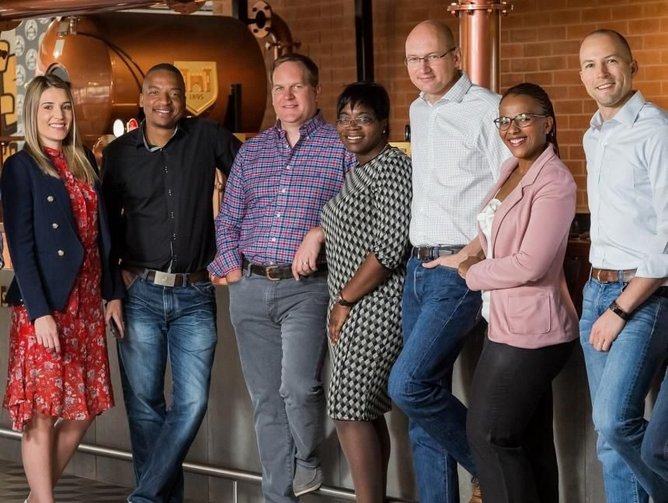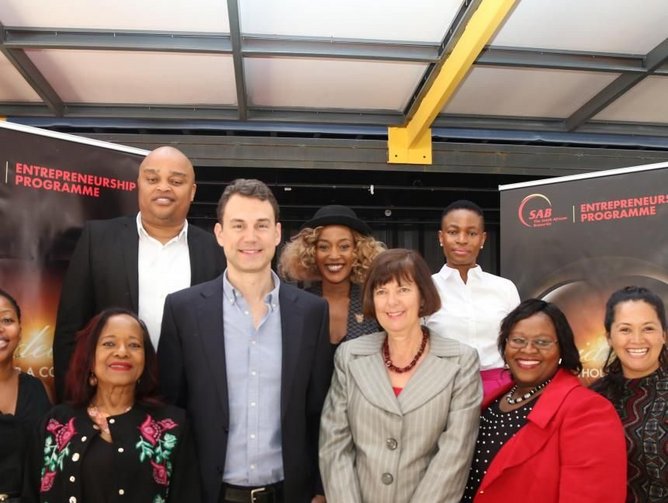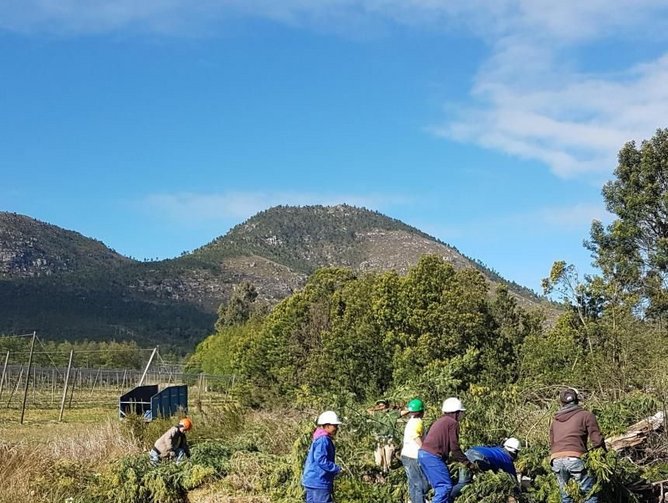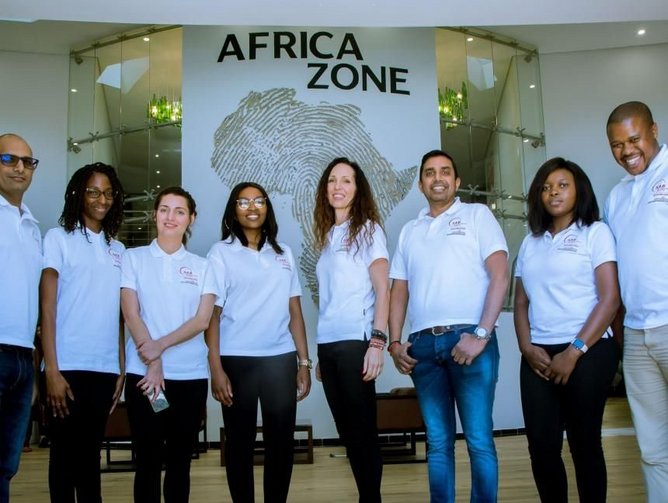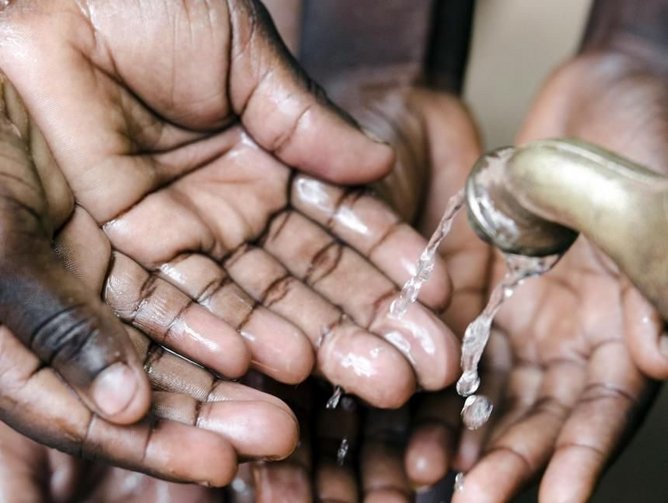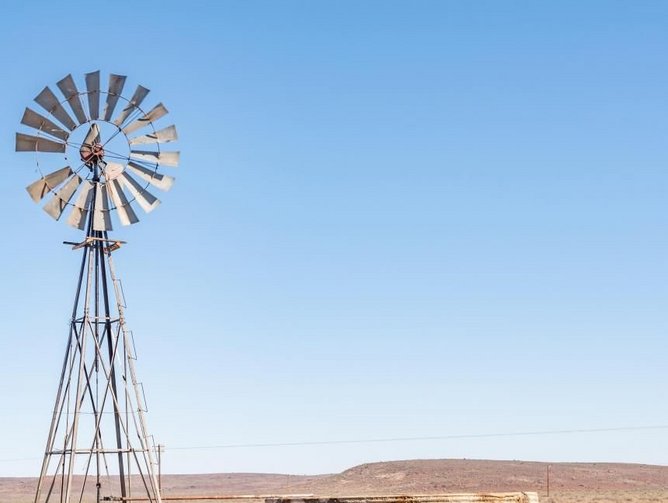For centuries, Anheuser-Busch InBev (AB InBev) has brought people together by brewing some of the world’s most renowned beers, including Budweiser, Corona and Stella Artois.
With a footprint which spans Africa, Europe, Asia and the United States, AB InBev can lay claim to the title of being the world’s largest brewer. But the organisation has loftier ambitions than size, and a responsibility to focus on more than just the bottom line.
Its vision is to generate real growth that in turn creates a better life for more people in more places, and the company is doing this by investing heavily in people and communities.
This is evident nowhere more so than in Africa, where in 2016, there was a business combination between AB InBev and SABMiller, a leading brewer on the continent. As with any acquisition, changes were made to both structure and staff complement.
AB InBev Procurement and Sustainability Vice President, David Hauxwell, has been blown away by the dedication and the love for the company felt by those who remained. “We have been able to go to market and find passionate people, and more importantly, kick off our Global Management Trainee and Procurement Trainee programmes to attract and retain the best talent. AB InBev has people who really believe in this company and in the culture of what we are trying to achieve,” he said.
SABMiller, founded in Johannesburg in 1895, was very much rooted in Africa. AB InBev is at the beginning of its African journey, but it can call upon more than a century of experience as one of the largest and most successful brewing companies in the world as it looks to the future.
The global business combination signals the company’s intent on establishing a firm foothold in the African market, not only to drive success and profit but to drive growth and create a real legacy of change across the entire continent.
“We realise that to be a sustainable, future-focused business, the resources, health and wealth of the communities in which we operate are vital,” said Hauxwell, who is responsible for leading the procurement and sustainability charge. Hauxwell, who has more than two decades of experience in the supply chain and procurement space, said AB InBev had a clear procurement and supply chain strategy across its entire African footprint which helped to provide the best raw ingredients sourced from local providers.
“AB InBev is continuously investing in a legacy which has been established through a commitment to work with local farmers, retailers and entrepreneurs to brew beer using only the best ingredients.”
As AB InBev focuses on enriching the lives of local suppliers and producers, Hauxwell has overseen something of a procurement transformation in recent years.
“What we see today in the procurement and supply chain space is that supply chain has taken on a much more key strategic role in an organisation like ours,” he said. “Not only are we driving efficiencies, but also leading real transformation in sustainability and entrepreneurship.”
With AB InBev’s footprint covering 27 breweries across 14 countries, this strong procurement and supply chain approach is driving the top and bottom line by supporting new product development and innovation by ensuring suppliers are ready and capable.
With global operations, one could be forgiven for assuming that the company applies a one-size- fits-all mentality across its operations.
In Africa, AB InBev has four different business units: West, East, Southern Africa and a stand-alone South African business unit, which each operate in different territories. “While there are only short distances between these units, each presents its own unique challenges. We have to tailor solutions to fit each market. What is successful in South Africa, is not going to work just across the border in Mozambique. It’s about working on the solutions that will be successful, and not solutions that look good on paper,” said Hauxwell.
The key element to a successful beer lies in what is inside the bottle, and in order to obtain the perfect ingredients, AB InBev invests significant funds into African agriculture. The company views the agriculture industry as one way in which it can truly support and build local communities.
John Rogers, Raw Material Procurement and Agricultural Development Director for AB InBev, said the company had a best practice mentality.
“We try and apply a standard approach as much as possible across our agriculture development programmes within each market and we take a farmer centric approach - our prices will be competitive - but we also focus on driving other areas that allow the farmers we work with to be more profitable, to want to partner with us and to ultimately continue to supply us with essential ingredients.”
This ‘farmer-first’ mentality is evident throughout AB InBev’s entire global agriculture vision. Whether it’s in North America, Europe or Asia, Rogers points to a desire for the company to develop and maintain a hands-on approach which is vital in ensuring that the company can truly develop and grow communities.
“This talks to the company’s other key growth initiative of entrepreneurship. Through a number of agriculture programmes, AB InBev ensures that it has the resources in the field to drive real value to the grower, which in this instance are the farmers and suppliers,” he said.
One such example of this is evident through the deployment of trained agronomists that are the embodiment of that hands-on approach.
“These agronomists are in the field, working with the farmers, providing greater knowledge and sharing best practices,” said Rogers. “They ensure the grower has the technical resources and access to latest research they need to be more productive and more efficient.”
AB InBev can promise to deliver growth and value to a local community and to the African agriculture space, but how does it measure that it is walking the talk?
“We know we can drive tangible value within African agriculture,” said Hauxwell. “But we need to be able to demonstrate this, and we have a number of measurement and evaluation processes in place to look at who is within our growth programmes and exactly how we’re delivering that growth.”
David Grant, Head of Sustainable Development: Africa Zone, can attest to this drive for growing value within African agriculture. As a brewer, sustainability and agriculture go hand in hand, as the company has a responsibility to create and foster a sustainable supply chain.
“Sustainability is definitely one of the core values of our business,” said Grant. “It’s evident in a number of ways – we have grounded strategies surrounding entrepreneurial growth and development, water stewardship, circular economy and our renewable energy drive.”
That renewable energy drive refers to AB InBev’s ambitious goal of sourcing all of its electricity from 100% renewable sources by 2025 and, as Hauxwell noted, the role of procurement has become more and more relevant to the company’s sustainability strategy.
“Sustainability has been a buzzword for years, however our approach to tackle it is changing. Climate change and sustainability impacts everything that we do. It affects our growers, our production and the communities we operate within.”
Sustainability has become even more focused under AB InBev’s global procurement strategy through the leadership of Tony Milikin, Global Chief Procurement and Sustainability Officer. There is a commitment to impactful projects and initiatives that will make a measurable difference.
With the acquisition of SABMiller, AB InBev had the opportunity to deliver a series of entrepreneurship programmes which were aligned under the wider procurement and supply chain umbrella.
“Procurement holds the key to allowing entrepreneurs access to the markets they need in order to grow their business,” said Hauxwell. “As procurement professionals, we are constantly trying to figure out how we can go beyond simple price, beyond the traditional relationship with suppliers and for me, we’ve really cracked that with the Accelerator programme.”
The Accelerator and Entrepreneurship programmes, headed up by Sanjay Premraj, Supplier Development Director and Zoleka Lisa, Procurement, Capabilities and Sustainability Director, respectively, create and develop the key suppliers of the future which are representative of relevant demographics.
“What we have found in Africa is that, while there are a number of local suppliers that we can work with, they don’t immediately have the capabilities required to be a part of the AB InBev supply chain,” said Premraj. “The Accelerator programme works with these suppliers to grow them to a point where they can integrate seamlessly and become key partners.”
AB InBev has set itself a target to create 10 000 jobs across in South Africa by 2022, and the Accelerator programme is key to reaching this goal.
“We understand that by creating and growing the suppliers, we’re creating real, meaningful jobs and in the end, a more robust local economy,” said Premraj.
Hauxwell looks at it from a broader perspective, noting that the company’s entire leadership team across its African zones has what he describes as an “African dream.”
“We want to be a company that's growing, a company that is efficient, a company that people love to work for and that makes a real difference in society,” said Hauxwell. “We want to attract suppliers and retain them in our company, while growing that community. That's where the job creation agenda fits in.”
As AB InBev keeps an eye on building its future supply chain, “it also nurtures its current supply chain to ensure that the relationships we have continue to be of true benefit not only to us at AB InBev, but to the suppliers themselves,” Lisa said.
A new bidding tool has been launched in the African zone for all of AB InBev’s suppliers. “We’re constantly introducing new capabilities in procurement,” she said.
“As part of the new tools we are rolling out, we ensured that we went into each of our African markets to equip those suppliers with a better understanding as to how to use the new technologies. We’re really looking at it as bringing our suppliers into the digital age by introducing them to new technologies and working with them to expand their skillsets.”
This is a sentiment echoed by Premraj, who noted that the world is changing and both AB InBev and the supplier base must change with it. “Sometimes, given the geographical limitations regarding skillset and workforce capabilities, this can prove challenging.”
But that challenge is part of AB InBev’s mission to create real and tangible growth.
“We want to push the change, and in many cases suppliers want to change, but don’t have the capability to do so. That’s where our Accelerator programme works to ensure longevity, relativity and helps the supplier to grow as we grow.”
While Premraj and Lisa are focused solely on the African markets, creating long lasting competitive suppliers, this concept expands beyond African boundaries.
“We try to create world class supply and world class suppliers. It’s about creating suppliers that can compete with one another, not just in Africa but on a global scale. We want to create globally placed suppliers.”
Both Lisa and Premraj worked for SABMiller and were two of many people based in Africa who embarked on a new journey as part of AB InBev.
With the business combination completed in 2016, the whole African arm of AB InBev is just over a year into this new venture and as one would expect with any acquisition, there were changes.
“There was some consternation from employees as to what it meant for their futures that a big company such as InBev had come in,” said Premraj. “And while there were clear similarities and shared DNA in the two companies, of course you’re going to lose people, which is unfortunate.”
“AB InBev has people who really believe in this company, in the culture of what we are trying to achieve,” said Hauxwell. “They believe in the future of this company, and the future for themselves.”
Two of the people that truly embody that belief and love for what AB InBev is striving for, are Lisa and Premraj, who had previously worked with SABMiller.
Lisa, for example, had been working in Africa, shaping and directing key procurement strategies for SABMiller, and can see first-hand exactly how AB InBev looks to drive growth and to empower people and communities, because she has been empowered by this merger to lead some exciting initiatives post the business combination.
“It’s been incredibly interesting to be a part of this change,” she said. “The company has enabled me to work with my global counterparts, to understand and apply the best procurement practices across the two organisations globally. The concept of being an owner and dreaming big has allowed me to drive ideas that I am passionate about and that will build our business. “
As with any merger, particularly one involving one of the largest brewing companies worldwide, how much of what made it the leading brewer in Africa will still remain?
“A year down the line, AB InBev has adopted or absorbed some of the best practices from SABMiller,” said Premraj. “We operate as one company - one organisation - and we apply a set model consistently across all parts of the globe, which is made up of the best of both companies.”
Hauxwell believes that the only way the company can grow in Africa is to grow Africa itself.
“We want to make sure that people in this continent understand that we're here to make a difference by growing the communities we operate in. As we progress into the future that will become much clearer and, in 10 years from now, we will be known as the best company on the continent, and the most preferred company to work in. That for me, personally, is what it’s all about. Delivering real value, and growth for both people that work within the organisation and for the communities in which we operate.”
